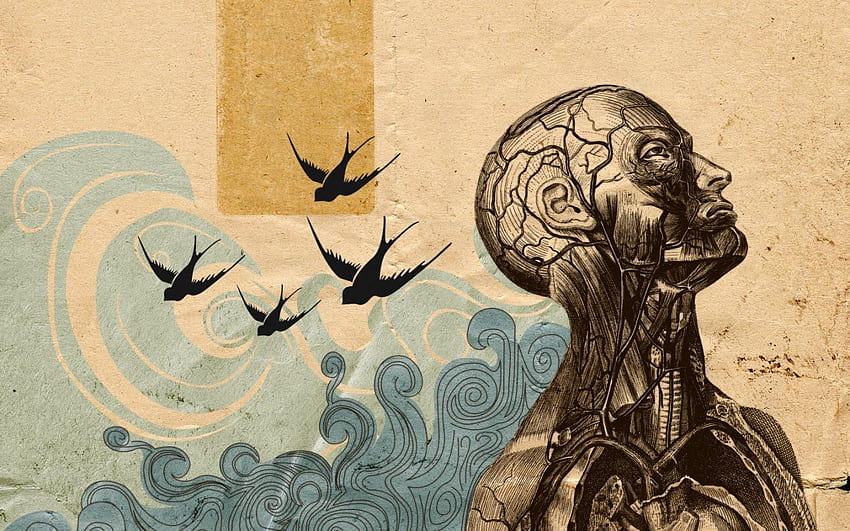
Psychology, the fascinating study of the human mind, has long captivated and perplexed us. As we delve into the depths of this complex field, we uncover the intricate workings of our thoughts, emotions, and behaviors. By examining the various theories, research methods, and applications of psychology, we can gain a deeper understanding of ourselves and the world around us.
At its core, psychology seeks to unravel the mysteries of the mind, attempting to answer questions that have intrigued humanity for centuries. How do our experiences shape our personalities? What drives our motivations and desires? How do we perceive and interpret the world? With each new discovery, psychology brings us closer to comprehending the intricacies of the human experience.
But psychology is far from a simple task. It is a multidimensional discipline that encompasses various branches, each focusing on different facets of the mind. From cognitive psychology, delving into the processes of thinking and problem-solving, to social psychology, examining the influence of others on our behavior, each branch contributes to our understanding of the complex tapestry that is the human mind. Through rigorous research and experimentation, psychologists uncover insights that shed light on the underlying mechanisms behind our thoughts, feelings, and actions.
Join us as we embark on a journey to unlock the mysteries of the mind. Through exploration and investigation, we will navigate the vast landscape of psychology, peering into the abyss of human consciousness. Prepare to be astonished, as we uncover the intricate web of connections between our thoughts, emotions, and behaviors, and gain a deeper appreciation for the intricate workings of the human mind. Welcome to the wondrous realm of psychology, where answers await those who dare to seek them.
The History and Evolution of Psychology
Psychology, the study of the mind and behavior, has a rich and fascinating history. It traces back to ancient civilizations, where philosophers and scholars pondered upon the mysteries of human thoughts and emotions. In the 19th century, psychology emerged as a distinct scientific discipline, influenced by various theories and advancements. Today, it continues to evolve and expand our understanding of the complexities of the human mind.
The roots of psychology can be found in ancient civilizations, such as those of Ancient Greece and Egypt. Philosophers like Plato and Aristotle explored questions about the nature of the mind, consciousness, and morality. They laid the foundation for later psychological theories and concepts.
In the late 19th century, Wilhelm Wundt established the first psychology laboratory in Leipzig, Germany. This marked the birth of experimental psychology, where researchers began to conduct controlled studies to understand the human mind. Wundt’s emphasis on introspection, the examination of one’s own thoughts and feelings, set the stage for the psychoanalytic theories of Sigmund Freud and the behaviorism of B.F. Skinner and Ivan Pavlov.
The early 20th century witnessed the rise of new approaches to psychology, such as humanistic psychology, which emphasized personal growth and self-actualization, and cognitive psychology, which focused on mental processes like perception and memory. These various perspectives contributed to the development of diverse branches within psychology, including clinical, social, developmental, and organizational psychology.
As technology advanced, so did the tools available to psychologists. The advent of neuroimaging techniques, such as functional magnetic resonance imaging (fMRI), has allowed researchers to observe the working brain and gain insights into the neural basis of thoughts, emotions, and behaviors. Moreover, the integration of psychology with fields like neuroscience, genetics, and artificial intelligence has opened up new frontiers and generated further interdisciplinary research.
In conclusion, psychology has come a long way from its philosophical roots to becoming a scientific discipline. Its history and evolution demonstrate humanity’s enduring curiosity about the inner workings of the mind. As we continue to unlock the mysteries of psychology, we gain a deeper understanding of ourselves and strive to improve the human experience.
2. Key Theories and Concepts in Psychology
In the fascinating realm of psychology, numerous key theories and concepts provide valuable insights into the complexities of the human mind. These theories offer frameworks for understanding and explaining various aspects of our thoughts, emotions, and behaviors.
One prominent theory in psychology is the psychoanalytic theory, developed by Sigmund Freud. According to this theory, unconscious desires and conflicts influence our behavior and shape our personality. Freud introduced concepts like the id, ego, and superego, which represent different parts of our psyche. The psychoanalytic theory has been instrumental in exploring the hidden motivations behind human actions.
Another influential theory is behaviorism, championed by psychologists such as B.F. Skinner and Ivan Pavlov. Behaviorism focuses on observable behaviors rather than unobservable mental processes. It suggests that our behaviors are shaped by external stimuli and reinforcements. Behaviorists emphasize the importance of conditioning and reinforcement in determining how individuals learn and adapt their behaviors.
Additionally, the cognitive theory highlights the role of mental processes in our understanding of the world. Cognitive psychologists like Jean Piaget and Albert Bandura propose that our thoughts, beliefs, and perceptions influence our behavior and shape our experiences. This theory explores how we acquire knowledge, solve problems, and process information, shedding light on the intricate workings of our cognitive abilities.
Understanding these key theories and concepts in psychology allows researchers, therapists, and individuals alike to gain valuable insights into human behavior, motivations, and mental processes. By unveiling the mysteries of the human mind, psychologists continue to expand our understanding of ourselves and the world around us.
3. Practical Applications and Future Prospects of Psychology
Best Psychologist Melbourne
Psychology, the study of the mind and behavior, holds significant practical applications in various fields. From mental health to education and workplace settings, the insights gained from psychology research have the potential to bring about positive change.
In the realm of mental health, psychology has proved invaluable in understanding and treating psychological disorders. Through therapy and counseling, psychologists help individuals navigate emotional and behavioral challenges, enabling them to lead healthier and more fulfilling lives. Moreover, psychology plays a vital role in the development of effective interventions for managing and preventing mental health conditions at both individual and societal levels.
In education, psychology offers valuable insights into how people learn and process information. By understanding cognitive processes, psychologists can develop teaching strategies that cater to different learning styles and optimize learning outcomes. Additionally, the field of educational psychology delves into topics such as motivation, memory, and problem-solving, providing educators with valuable tools to enhance student engagement and success.
Psychology also contributes to creating a positive and efficient work environment. Organizational psychology explores the dynamics between individuals and their work settings, helping companies understand employee behavior, motivation, and job satisfaction. By implementing evidence-based strategies, organizations can foster employee well-being, productivity, and collaboration, ultimately leading to better outcomes for both employees and employers.
Looking towards the future, the prospects for psychology are promising. As technology continues to advance, the integration of psychology and artificial intelligence offers exciting possibilities. From virtual reality therapy for treating anxiety disorders to personalized learning algorithms, the fusion of psychology and technology has the potential to revolutionize the way we approach mental health, education, and workplace interventions.
In conclusion, psychology has practical applications that span various domains, including mental health, education, and the workplace. The insights gained from psychological research have the power to improve our understanding of ourselves and others, leading to more effective interventions and positive outcomes. As technology progresses, the future of psychology holds even greater possibilities for shaping a healthier and more fulfilling world.
